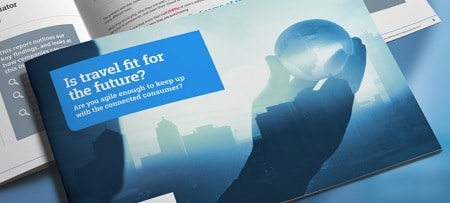
The study, from agile software development specialists, Black Pepper Software, indicates that nearly two thirds (60%) of UK consumers now research and buy their holidays and breaks away online. However, travel companies’ current online offerings may not be sufficiently meeting the needs of connected shoppers, with 47% of UK customers complaining of slow webpage loading times and 41% agreeing that ecommerce sites had overly complex check-out processes.
As consumers holiday buying journeys increasingly move online – just 4% of UK shoppers will now solely use High Street travel agents to book their breaks – 39% of consumers say they prefer to find out information about their holiday independently online.
Only one in ten (10%) of holiday shoppers will have an in-depth conversation with a sales person when making their travel buying decisions, however, the report showed an increasing trend in consumers depending on online reviews and other digital functions, such as chatbots, when making their holiday choices. With the continuing popularity of review sites, such as TripAdvisor, a third (29%) of holiday shoppers said they would trust online reviews left by other customers over recommendations made by sales people, while 10% would happily use online chat functions or virtual assistants to help them with their booking decisions.
Rowan Welch, Account Director at Black Pepper Software, commented: “Consumers are increasingly turning to omnichannel buying behaviours when it comes to choosing and booking their holidays – a trend set to increase further, following the UK Government’s move to bring in stronger protection for those booking holidays online. Travel businesses need to respond to this shift by ensuring their digital channels are fit for purpose to meet connected customers’ demands around the online experience – lest they risk lost conversions and, ultimately, sales.”
“When developing the customer experience, it’s imperative that travel businesses take a long-term view, as opposed to just focusing on what consumers need today. A short-term view may fix immediate problems, but it can inhibit long-term innovation, which is where true competitive advantage lies,” she concluded.
